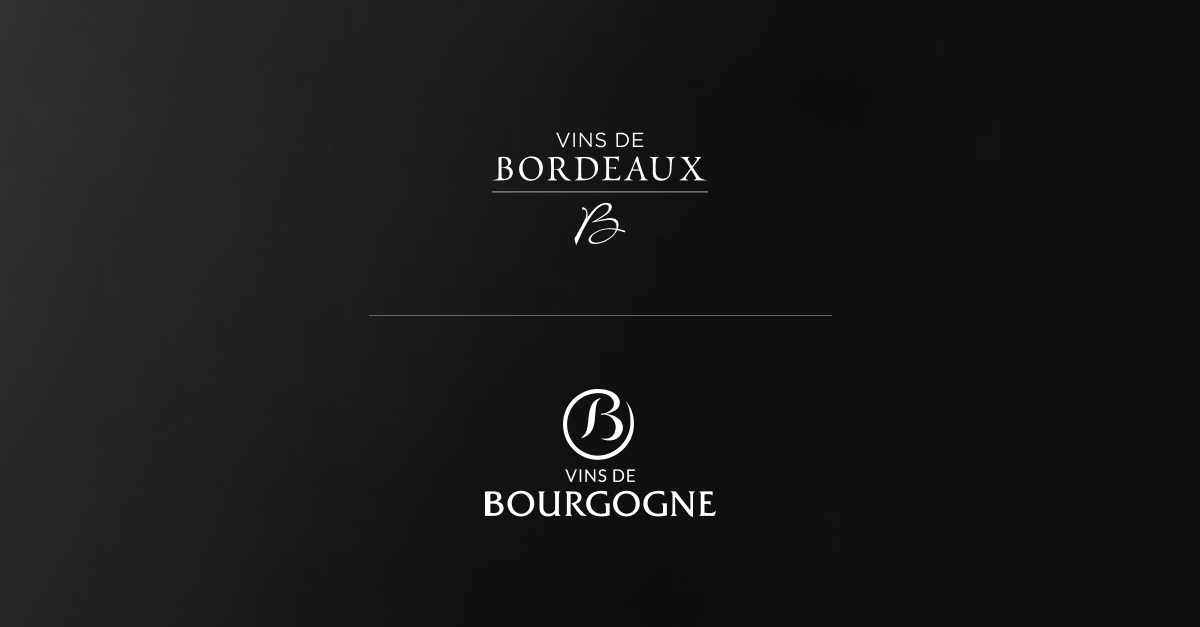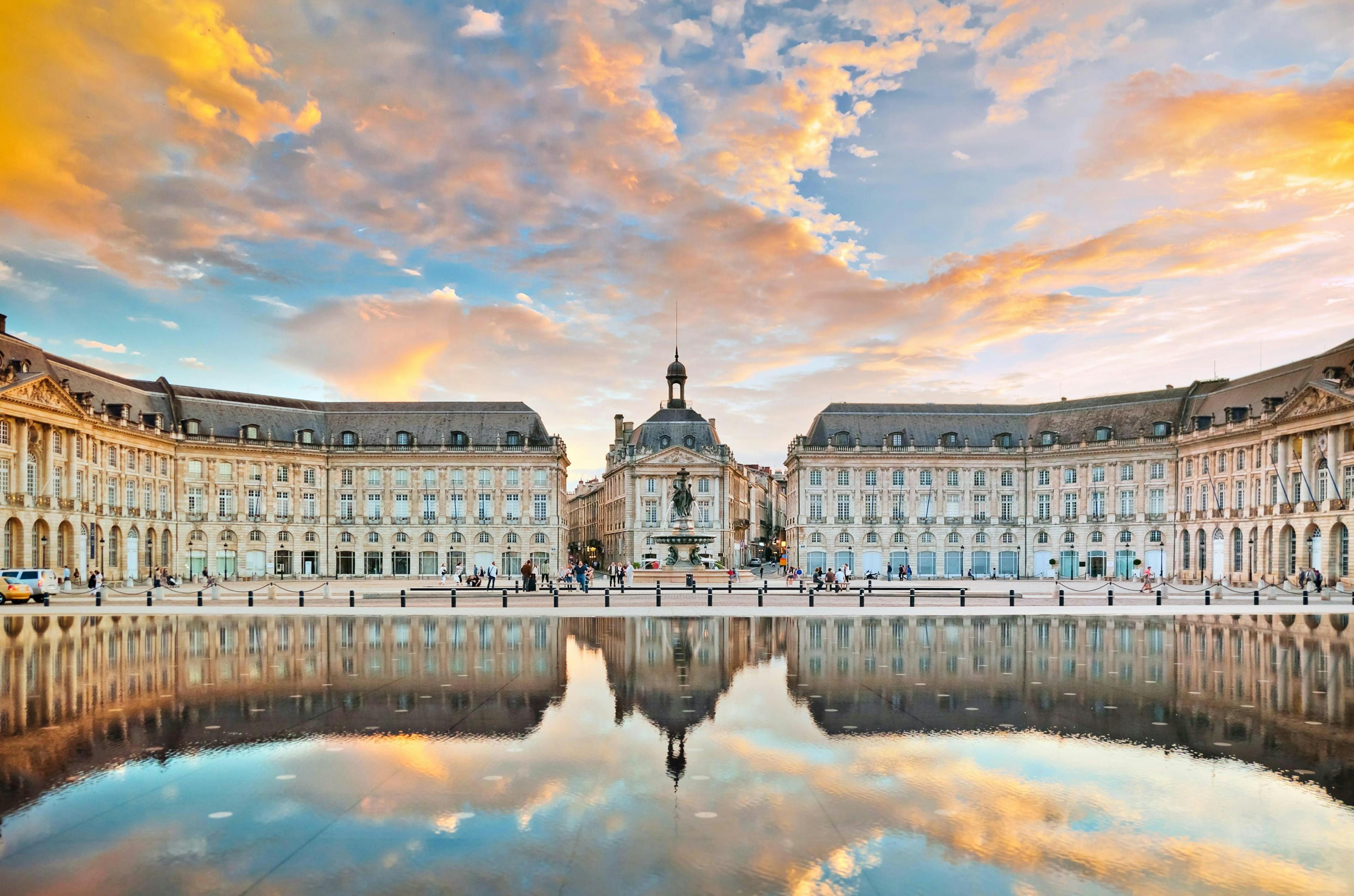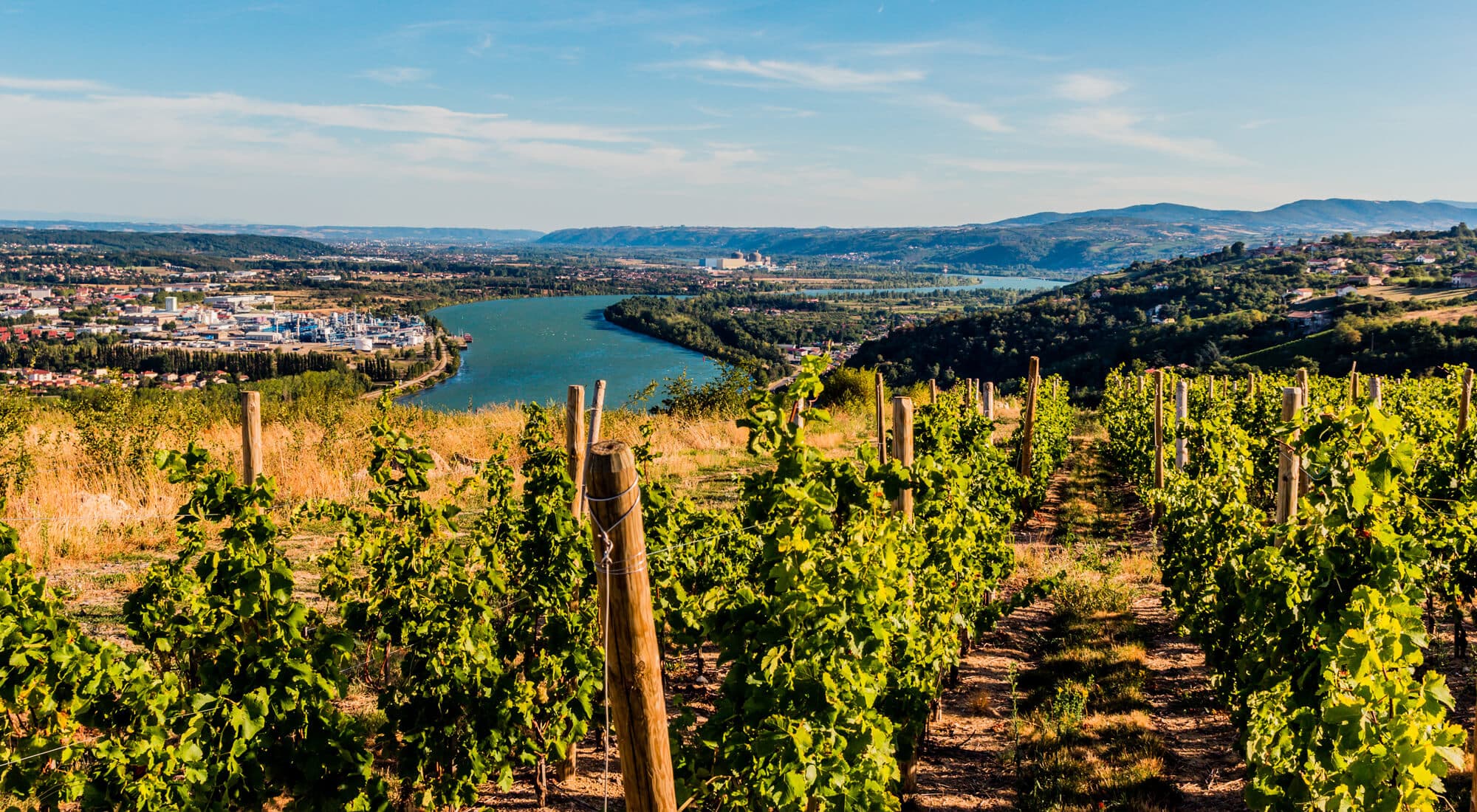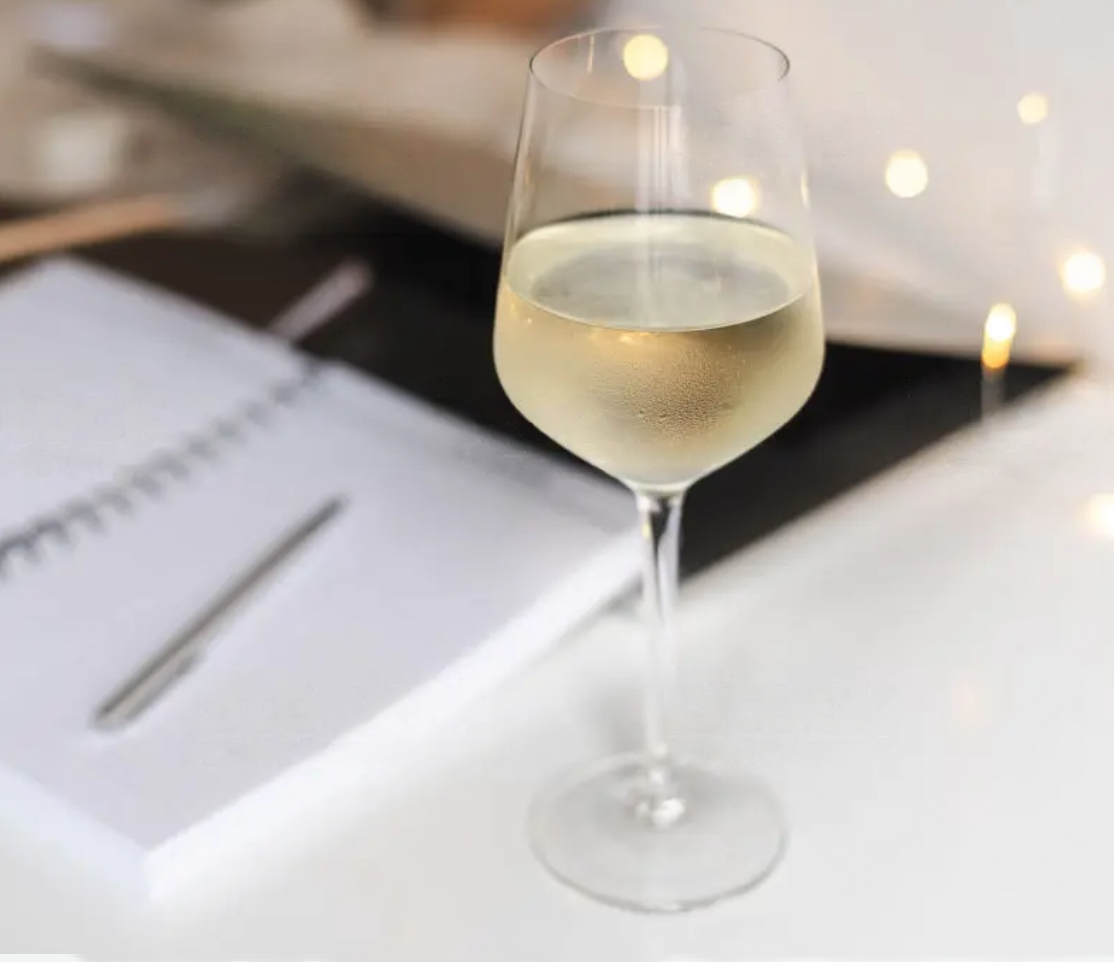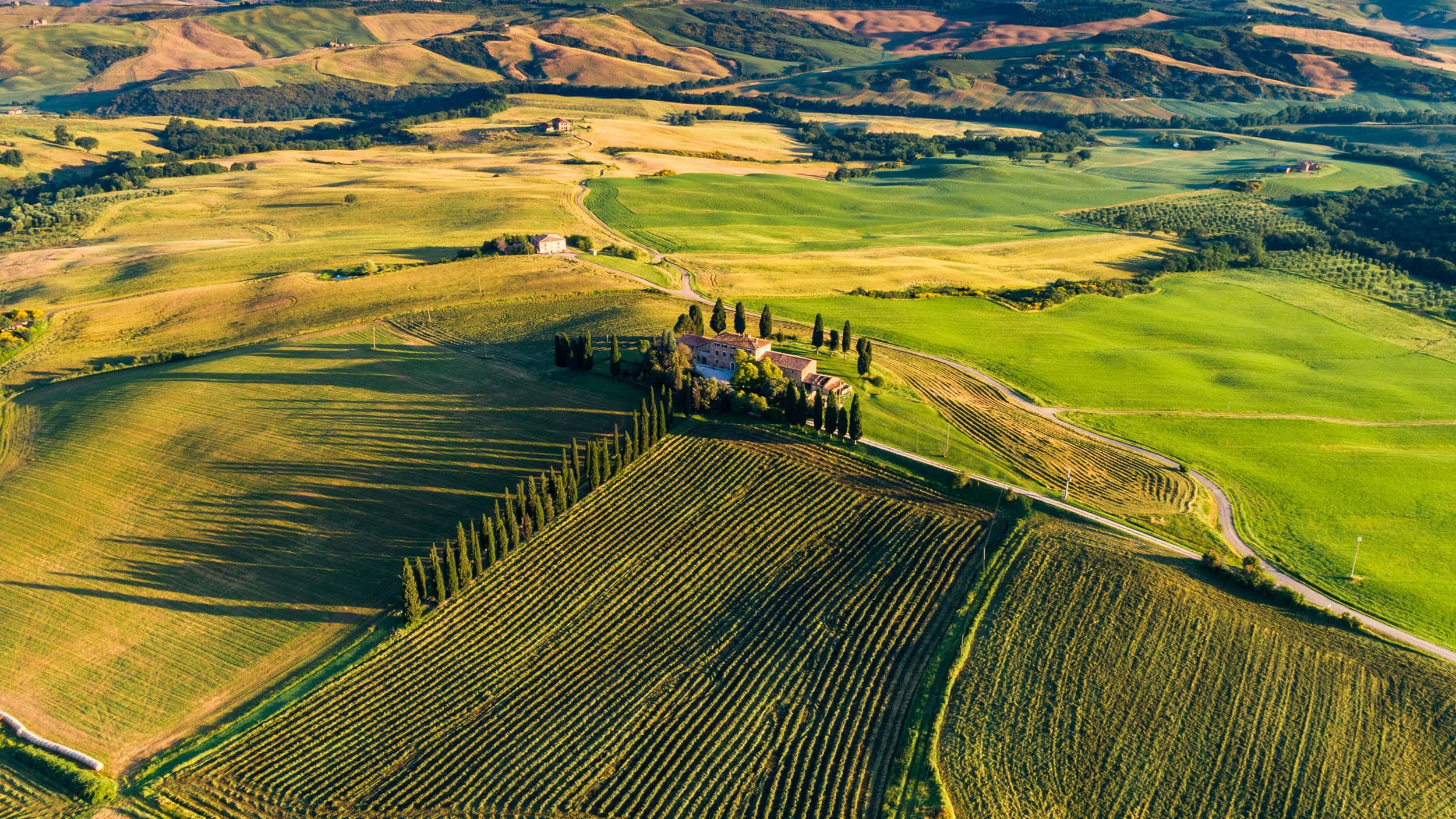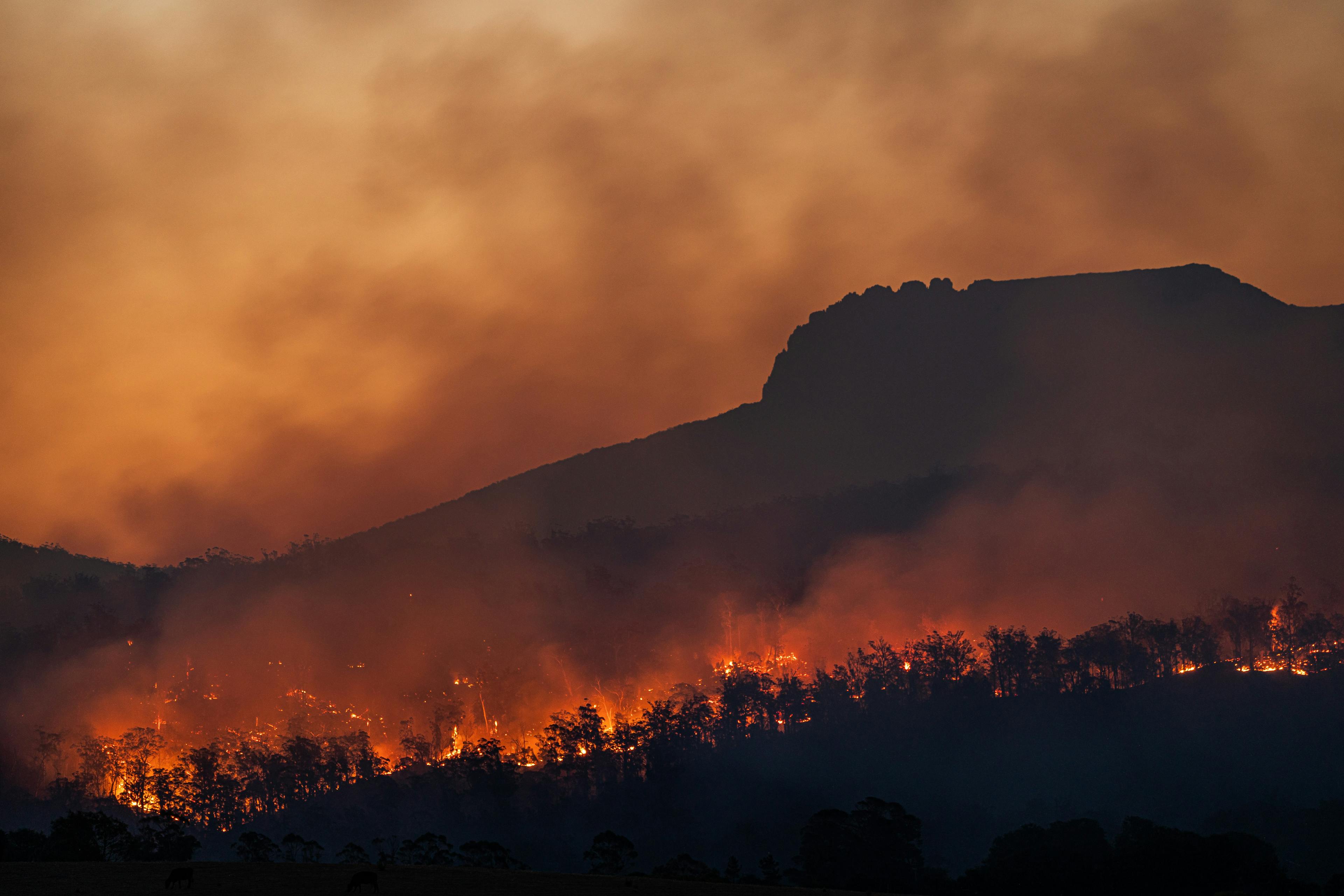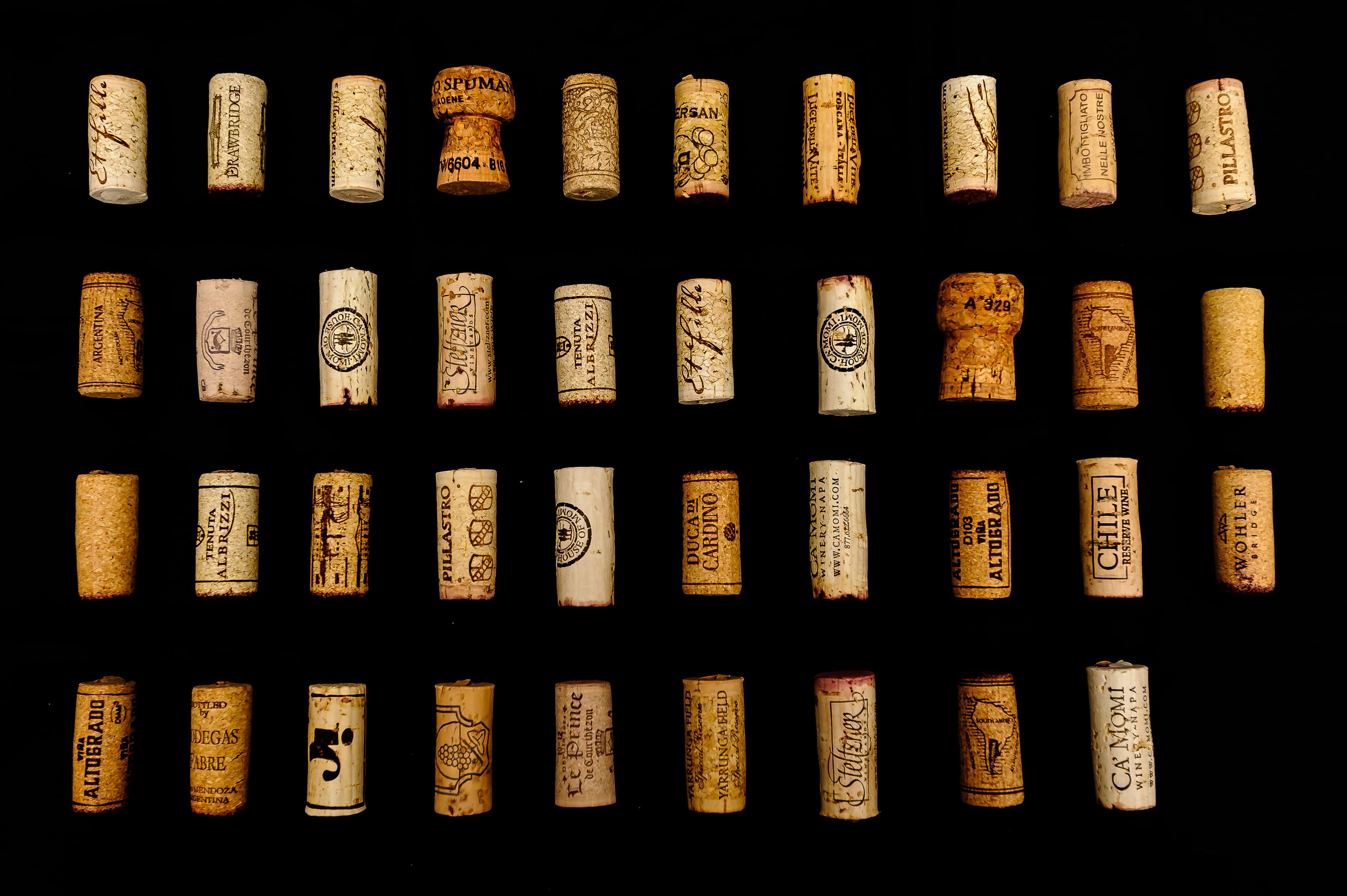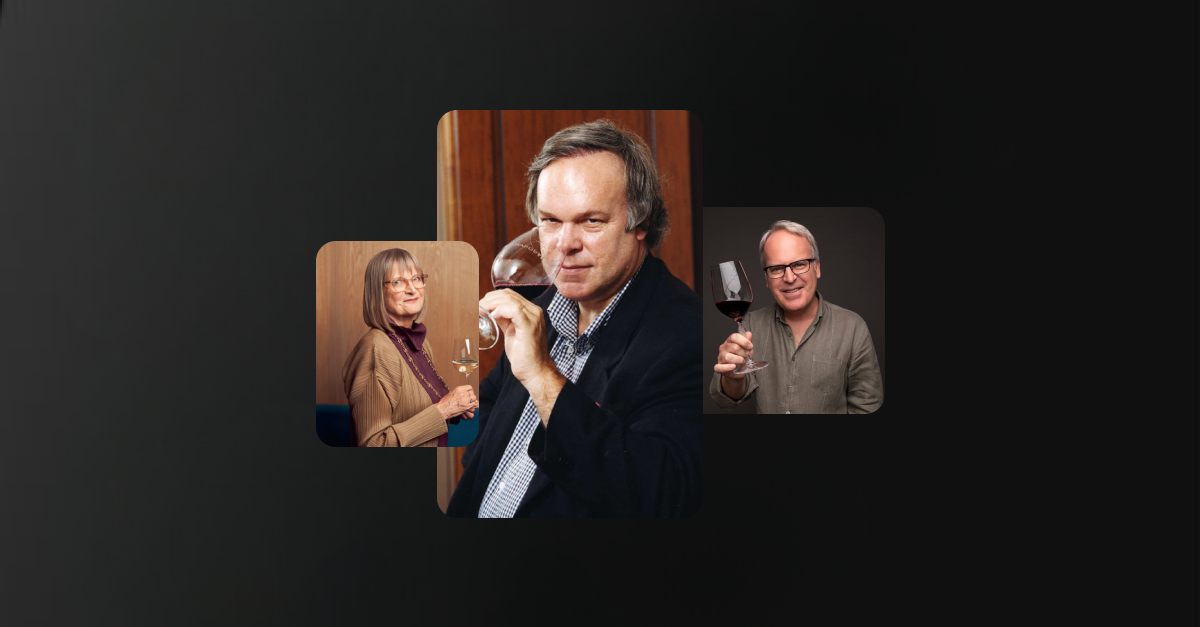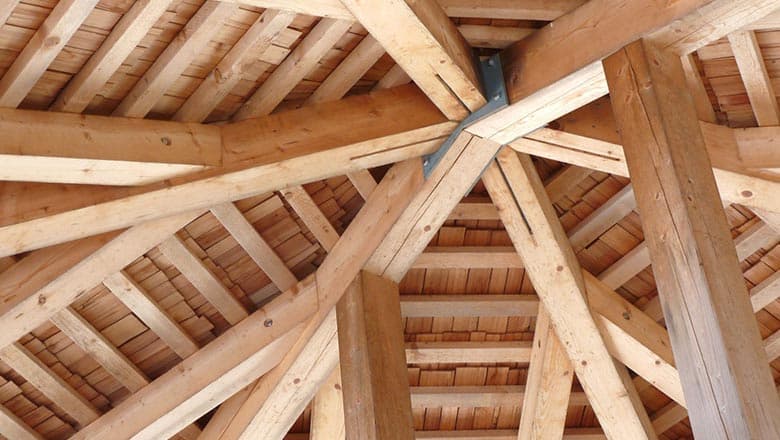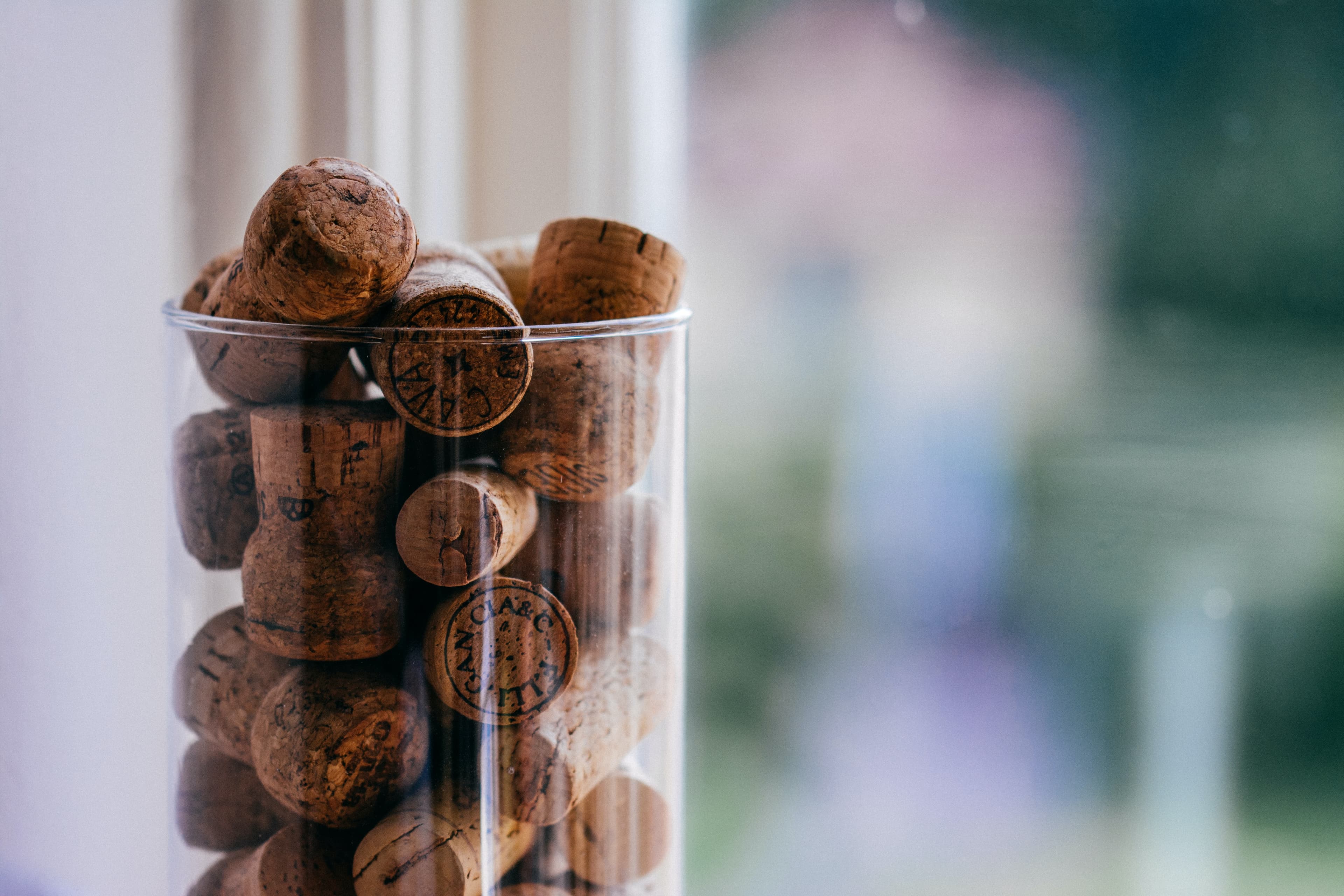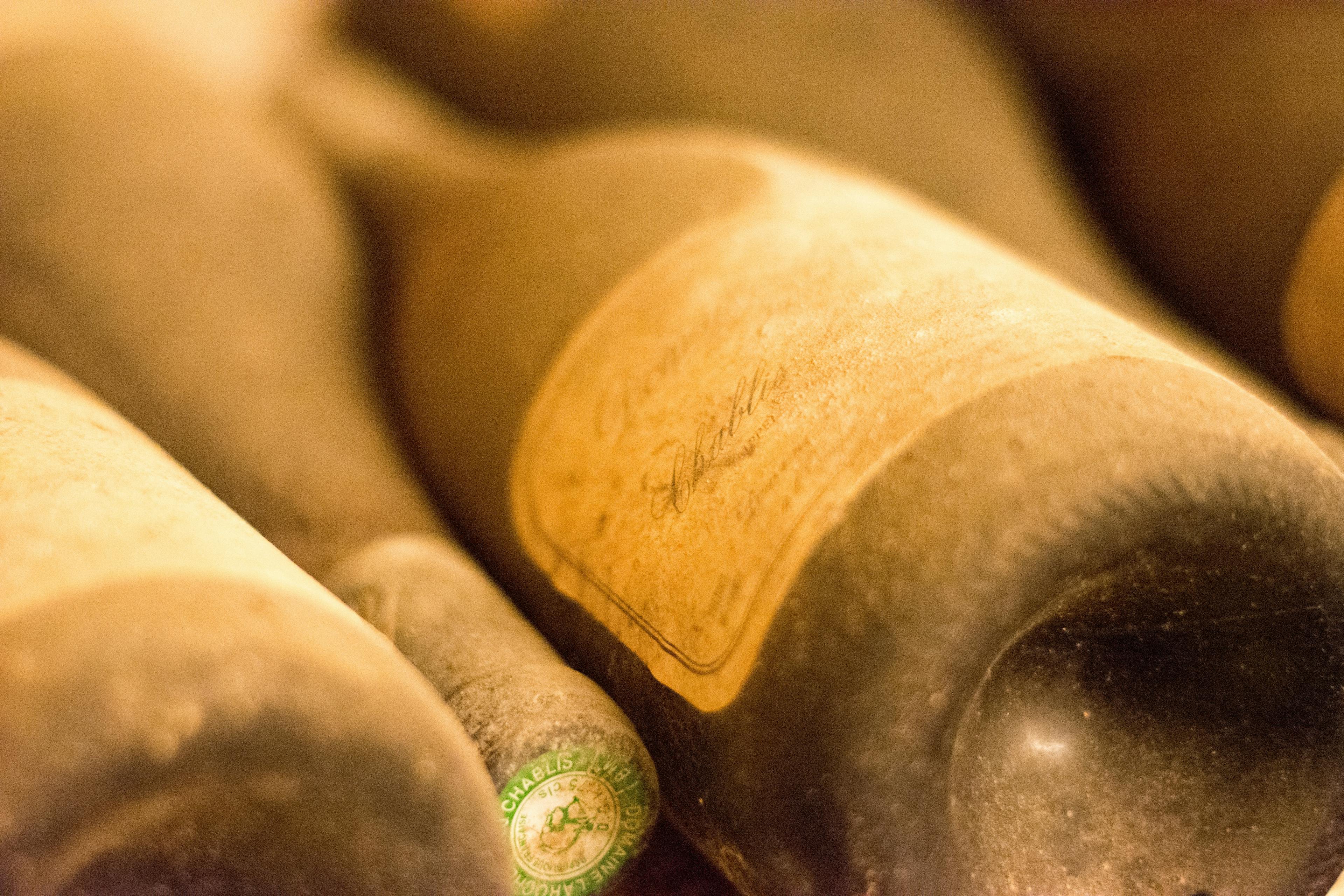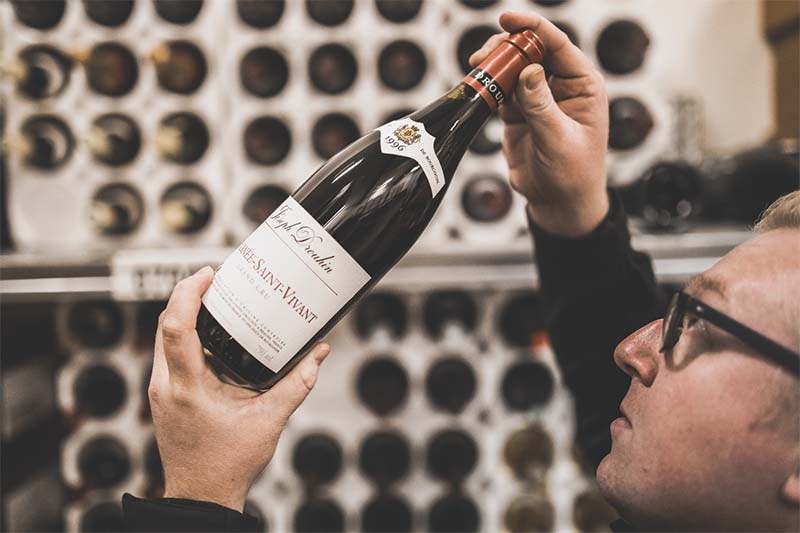The Craftsmanship Behind Domaine Jean-Louis Chave
11 min read
Head of Content

Discover the meticulous artistry and tradition that define Domaine Jean-Louis Chave, a revered name in the world of fine wines. Nestled in the heart of France's Rhône Valley, this esteemed winery has been perfecting the craft of winemaking for generations. With a focus on quality and a deep respect for terroir, Domaine Jean-Louis Chave produces some of the most exquisite Hermitage wines, each bottle a testament to the family's dedication and expertise. Join us as we delve into the history, techniques, and passion that make this winery a beacon of excellence in the wine industry.
Vineyard Management: A Year in the Life
Vineyard management at Domaine Jean-Louis Chave is a meticulous process that reflects the dedication to quality and tradition. Throughout the year, each season demands specific tasks to ensure the health and productivity of the vines. In spring, the focus is on pruning to control growth and enhance the vine's structure. This activity sets the stage for optimal sunlight exposure and air circulation, crucial for preventing diseases.
Summer brings with it the vital process of canopy management, which involves adjusting the leaves and branches to ensure grapes receive adequate sunlight. This period also requires vigilant monitoring for pests and diseases, with interventions kept as natural as possible to align with organic farming principles.
As autumn approaches, the grapes are carefully monitored for ripeness, ensuring they are harvested at the perfect moment for quality wine production. This careful timing contributes to the creation of popular vintages.
Winter is less intense but equally important, focusing on soil health. Cover crops are planted between the vine rows to prevent erosion and improve the soil's organic matter, setting a solid foundation for the next growing cycle.
Harvesting Techniques: Ensuring Optimal Quality
Harvesting techniques at Domaine Jean-Louis Chave are meticulously designed to ensure the optimal quality of their wines. The process begins with the careful selection of grapes, which are picked only when they have reached perfect maturity. This timing is crucial as it affects the acidity, sweetness, and flavor profiles of the wine. Workers handpick the grapes to minimize damage and preserve their natural qualities.
The vineyard employs a method known as 'triage,' where grapes are sorted to discard any that are not up to standard. This step is vital for maintaining the integrity of the flavor. After sorting, the grapes are gently pressed to extract the juice while preventing the seeds and skins from releasing bitter tannins.
Temperature control during fermentation is another critical aspect. By managing the temperature, the winery ensures that the fermentation process progresses slowly and steadily, which enhances the development of complex flavors and aromas.
For those looking to store their Domaine Jean-Louis Chave wines, maintaining a proper environment is essential. Ideal conditions include a cool, dark place with stable temperatures and humidity levels, ensuring the wine's longevity and flavor preservation.
The Art of Blending Different Varietals
At Domaine Jean-Louis Chave, the art of blending different varietals is elevated to a form of high craftsmanship. This revered winery, nestled in the heart of the Rhône Valley, meticulously combines various grape types to create wines that are complex and harmoniously balanced. Each varietal contributes unique characteristics that, when expertly blended, result in a wine greater than the sum of its parts.
Syrah brings deep colors and robust tannins, imparting structure and longevity.
Marsanne offers rich, nutty flavors that add depth and texture to the blend.
Roussanne contributes aromatic elegance, infusing the wine with floral and herbal notes.
Mastering this process requires deep knowledge of each varietal's behavior in different soils and climates. The Chave family, through generations of enjoying and refining their craft, has perfected the art of determining the ideal proportions and the optimal time for blending. This ensures that each bottle expresses the unique terroir of their vineyards, capturing the essence of the region with every sip.
Fermentation Processes and Their Nuances
The fermentation processes at Domaine Jean-Louis Chave are integral to the unique taste of their wines. Each step is meticulously managed to ensure the highest quality. The winery employs both traditional wooden vats and modern stainless steel tanks, allowing precise control over temperature and fermentation speed. This dual approach facilitates a diverse range of flavors and textures in the final product.
Temperature Control: By carefully regulating the temperature during fermentation, the winery promotes optimal yeast activity. Cooler temperatures typically slow the fermentation process, resulting in more delicate and aromatic wines.
Yeast Selection: The choice of yeast strains is crucial. Each strain contributes differently, affecting aroma, flavor, and even the wine's mouthfeel. Domaine Jean-Louis Chave selects specific yeasts that complement the inherent qualities of their grapes.
Cap Management: During fermentation, the cap of grape skins that forms on the surface is regularly submerged. This technique, known as 'punching down', enhances color extraction and helps develop a more complex flavor profile.
These carefully honed techniques contribute significantly to the character and consistency of the wines produced at Domaine Jean-Louis Chave.
Barrel Aging: Types of Wood and Duration
Barrel aging is a crucial step in the production of wines at Domaine Jean-Louis Chave, significantly influencing the flavor, texture, and complexity of the wine. The choice of wood and the duration of aging are meticulously considered to align with the desired outcome of each vintage.
Type of Wood: Traditionally, French oak is preferred for its tight grain and moderate tannin release, which subtly enhances the wine without overpowering its natural flavors. Each barrel is crafted from trees specifically selected for their age and quality, ensuring consistency and excellence in every batch.
Duration of Aging: The aging period varies depending on the wine variety and the vintage characteristics. Typically, wines spend between 12 to 24 months in barrels, allowing enough time for them to acquire the desired oaky notes while maintaining the original fruit essences. The winemakers at Domaine Jean-Louis Chave carefully monitor the development of the wine throughout this period, making adjustments as needed to achieve the perfect balance.
For more detailed insights into the history of Domaine Jean-Louis Chave and its winemaking traditions, exploring the specific practices and philosophies that have shaped its reputation is essential.
Bottling: Techniques and Timing
Bottling is a critical phase in winemaking, where the stability and longevity of the wine are significantly influenced. At Domaine Jean-Louis Chave, meticulous attention is paid to both techniques and timing to ensure the wine's quality is preserved. The process begins only when the wine has matured to its optimal point, ensuring that all the desired characteristics are intact.
Preparation: Before bottling, the wine undergoes a final quality check. This includes adjustments for clarity and stability, ensuring that no unwanted sediments are transferred during the bottling process.
Sanitation: Every bottle is sterilized to prevent contamination that could spoil the wine's flavor and aroma.
Filling: The filling machines are calibrated to dispense the exact amount of wine, minimizing exposure to oxygen and preventing oxidation.
Corking and Capping: High-quality corks and caps are used to seal the bottles, providing an airtight environment that aids in aging.
Labeling and Packaging: Labels are carefully applied, and bottles are packaged in a way that protects them from light and temperature fluctuations during storage and transportation.
Each step is performed with precision, reflecting the dedication to quality that Domaine Jean-Louis Chave is known for.
Quality Control: From Vineyard to Bottle
At Domaine Jean-Louis Chave, quality control is a meticulous process that begins in the vineyard and continues through to the final product. This renowned winery ensures that each step, from grape selection to bottling, adheres to the highest standards. In the vineyards, only the best grapes are chosen, based on their maturity and health, to guarantee the wine's flavor and integrity.
During the fermentation process, temperatures are carefully monitored to ensure optimal conditions. The aging process is equally critical, with wines maturing in carefully selected oak barrels that enhance their complexity and character. Before bottling, each batch undergoes rigorous testing to maintain the wine's quality and consistency.
Finally, understanding how to serve Domaine Jean-Louis Chave can significantly impact its enjoyment. Key considerations include:
Ensuring the wine is at the correct temperature
Choosing the right glass to enhance its aromas and flavors
Decanting the wine, if necessary, to allow it to breathe
Each of these steps is crucial for experiencing the full expression of Domaine Jean-Louis Chave wines.
Innovations in Winemaking
Domaine Jean-Louis Chave, a revered name in the winemaking industry, has consistently embraced innovations to enhance the quality and distinctiveness of their wines. At the heart of their approach is a deep respect for traditional methods combined with a willingness to implement new techniques that refine the process and product. For instance, the vineyard has experimented with organic viticulture, aiming to preserve soil health and ensure sustainability. This shift not only supports the environment but also contributes to the richer flavor profiles of their wines, which are ideal for various food pairings.
Controlled Fermentation: By regulating temperatures during fermentation, Domaine Jean-Louis Chave can preserve essential aromas and achieve a more balanced acidity, crucial for wines meant to age well.
Selective Harvesting: The winery employs selective harvesting to pick grapes at optimal ripeness, which ensures the wine's complexity and depth.
Barrel Aging Innovations: Experimenting with different woods and aging periods allows the winery to customize the tannin levels and aromatic infusion, tailoring each batch to specific taste profiles.
These techniques collectively contribute to the esteemed reputation of Domaine Jean-Louis Chave, making their wines highly sought after by connoisseurs and enthusiasts alike.
Maintaining Consistency Across Vintages
Maintaining consistency across vintages at Domaine Jean-Louis Chave is a testament to the meticulous care and deep understanding of viticulture. This revered winery, nestled in the heart of the Rhône Valley, has been producing some of the world's most esteemed wines for generations. Each year, despite the varying climatic conditions, the Chave family manages to deliver wines that reflect both the character of the vintage and the unmistakable signature of their terroir.
Adaptation to Climate: The Chave family closely monitors the weather patterns each year, adjusting their viticultural techniques to suit. This might involve altering the canopy management or the timing of harvest to optimize grape quality.
Soil Management: They maintain soil health through careful practices that ensure a balanced ecosystem. This includes regular organic composting and avoiding the use of chemical pesticides, which helps preserve the natural yeast populations crucial for fermentation.
Selective Harvesting: Grapes are handpicked with precision, ensuring that only the best fruit makes it into the final blend. This selective process is crucial for maintaining quality consistency.
Aging Techniques: The aging process is tailored to each vintage, utilizing a mix of new and old oak barrels to achieve the desired flavor profile without overpowering the wine's natural characteristics.
For more detailed facts, exploring the specific techniques and strategies employed can provide deeper insights into the art of winemaking at Domaine Jean-Louis Chave.
The Role of the Winemaker: Skills and Sensibilities
The role of the winemaker, particularly in esteemed establishments like Domaine Jean-Louis Chave, is pivotal, blending both technical skills and deep sensibilities towards the craft. This unique combination ensures the production of exceptional wines that are true to their terroir and heritage.
Technical Expertise: Mastery over the processes of fermentation, aging, and bottling is crucial. Winemakers must understand the intricate chemistry of wine, which includes managing pH levels, yeast strains, and tannin structures. This knowledge allows them to predict and influence the wine's development.
Sensory Skills: A refined palate is essential for identifying and balancing the subtle flavors and aromas in wine. The winemaker's ability to discern slight nuances can make the difference between a good vintage and a great one.
Vineyard Management: Understanding the ecosystem of the vineyard is vital. Decisions on when to harvest and how to manage soil health directly affect the quality of the grapes and, consequently, the wine.
Innovation and Tradition: Balancing innovative techniques with the traditional methods specific to their region is a hallmark of skilled winemakers. They must respect the legacy of their domaine while also embracing modern advancements to enhance quality and sustainability.
These skills and sensibilities are what define the craftsmanship at Domaine Jean-Louis Chave, ensuring each bottle reflects both the character of the region and the signature of the winemaker.
Conclusion
In conclusion, the meticulous craftsmanship behind Domaine Jean-Louis Chave highlights the profound connection between traditional winemaking techniques and the exceptional quality of the wines produced. This storied domaine, with its deep roots in the heart of the Rhône Valley, exemplifies how generations of knowledge and a commitment to terroir-driven viticulture can culminate in wines that are not only a pleasure to taste but also a wise investment.
For enthusiasts and collectors looking to acquire bottles from Domaine Jean-Louis Chave, Rekolt offers a seamless solution that preserves the integrity and value of these exquisite wines. By choosing our professional cellar storage option, you ensure that your investment is maintained in optimal conditions, ideal for maturation or future resale. This service not only enhances the longevity and flavor profile of the wine but also adds a layer of convenience and security, making it easier to manage your wine portfolio and trade with confidence.
Whether you are a seasoned collector or a new enthusiast, understanding the importance of proper storage and the potential for appreciation in fine wines like those from Domaine Jean-Louis Chave is crucial. At Rekolt, we are dedicated to supporting your passion for wine by providing expert care and a platform for easy trading and resale, ensuring that every bottle you purchase reaches its fullest potential.
Share this article
